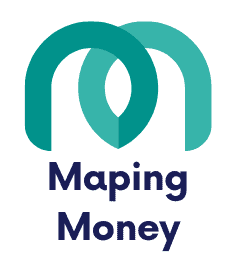10 Essential Jewish Money Saving Tips for Every Budget
To save money within any budget, begin by embracing tithing principles to cultivate a mindset of abundance while supporting your community. Track your income and expenses diligently to identify unnecessary costs and evaluate major expenses carefully. Develop a supportive network of family and friends who hold you accountable. Teach financial literacy to children and practice mindful spending, particularly in grocery shopping. Take advantage of community resources and local support groups to expand your financial knowledge. By applying these essential Jewish money-saving tips, you can enhance your financial health and discover further strategies that benefit your budget.
Key Takeaways
- Embrace tithing principles by donating 10% of after-tax income, fostering a mindset of abundance and community support.
- Track income and expenses using budgeting tools to identify spending patterns and areas for potential savings.
- Create a family budget through collaborative financial planning to enhance teamwork and accountability in money management.
- Plan grocery shopping with a detailed meal plan to minimize impulse purchases and optimize savings on essential items.
- Teach financial literacy to children by discussing needs versus wants, instilling responsible money management from an early age.
Embrace Tithing Principles

Embracing tithing principles can greatly impact your financial well-being while aligning your spending habits with your values. Tithing, or Maaser, involves donating 10% of your after-tax income to those in need, reflecting the importance of generosity in Jewish tradition. By committing to this practice, you not only support your community but also cultivate a mindset of abundance.
To streamline your tithing process, consider establishing a dedicated bank account for these contributions. Regularly transferring 10% of your income to this account reinforces the habit of giving, guaranteeing that your financial management aligns with your spiritual values. The Talmud teaches that neglecting to tithe can lead to reduced financial returns, emphasizing both the spiritual and practical benefits of adhering to this principle.
Conducting an annual accounting of your tithing contributions helps you stay accountable and guarantees you meet the 10% requirement. This practice reflects a commitment to responsible financial stewardship, giving you a sense of freedom and peace as you manage your resources. By embracing tithing, you can transform your financial landscape, aligning your monetary actions with your ethical beliefs and enhancing your overall financial health.
Track Your Income and Expenses

Tracking your income and expenses is vital for effective financial management. To gain control over your money, start by utilizing budgeting tools like Mint.com or Quicken. These platforms automate the process and provide clear insights into your financial habits. Keeping a detailed record of all receipts or maintaining a running list of expenditures can help you identify spending patterns and highlight areas for potential savings.
Aim to review and categorize monthly expenses, focusing on major categories like housing, transportation, and food. This will reveal where you can make reductions. Implementing a cash-based system can also be beneficial; withdraw only the amount you plan to spend. This strategy limits impulse purchases and enhances your awareness of spending.
Lastly, conducting regular audits of your financial statements is imperative. These audits guarantee accuracy and help catch unauthorized transactions or unnecessary subscriptions. By consistently tracking your income and expenses, you empower yourself to make informed financial decisions and pave your path toward greater freedom. Remember, the more you understand your financial landscape, the better equipped you'll be to achieve your money-saving goals.
Evaluate Major Expenses

Evaluating major expenses is crucial for achieving financial stability and maximizing savings. Begin by analyzing your housing costs, as this typically represents the largest portion of your budget. Consider downsizing or subletting unused space to reduce costs considerably. Next, take a close look at your transportation expenses. Evaluate major expenses related to maintenance and insurance and explore alternatives like public transport or carpooling to save money.
Food is another area where you can control expenses. Meal planning and cooking at home not only nourish you but also save money. Focus on shopping sales and preparing bulk meals, which can streamline your grocery budget and reduce waste.
Make it a habit to regularly review these major expenses. This practice can reveal opportunities for savings that might not be immediately apparent. Be cautious of impulse purchases, especially for substantial costs. Implementing a waiting period for large purchases can ascertain they're necessary and planned, preventing budget derailment. By taking these steps, you'll find yourself on the path to effective saving money and a more secure financial future.
Identify Unnecessary Costs

After evaluating your major expenses, the next step is to identify unnecessary costs that can be trimmed from your budget. Start by reviewing your subscriptions—cancel any that you rarely use. This simple action can greatly reduce your monthly expenses. Additionally, implement a 24-hour waiting period before making impulsive purchases. This pause allows you to assess whether the item is truly necessary, helping you save money in the long run.
Take advantage of sales and discounts for non-perishable items, stocking up only on what you genuinely need. This strategy not only saves you cash but also minimizes last-minute convenience purchases, which often lead to overspending.
Consider your leisure activities, too. Instead of dining out, host potluck dinners with friends. This not only cuts costs but also fosters connections without breaking the bank. Finally, assess your lifestyle habits—identify areas where you can cut back, like frequent takeout or premium subscriptions, without sacrificing enjoyment. By taking these steps to identify unnecessary costs, you empower yourself to achieve greater financial freedom and flexibility, ultimately improving your overall quality of life.
Create a Supportive Network

Building a supportive network can be a game-changer for your financial journey. When you involve family and friends in your financial goals, you create accountability. Sharing tips on saving effectively with those close to you can enhance your approach to personal finance. Establishing regular discussions about budgeting and spending habits fosters a collaborative atmosphere that makes financial management less intimidating.
Celebrate small financial victories together to maintain motivation and reinforce positive saving behaviors. Recognizing success, no matter how minor, encourages a continued commitment to your goals. Additionally, seek advice from individuals in your network who excel in money management. Their insights can provide valuable strategies for effective budgeting and saving.
It's also essential to limit your exposure to negative financial influences. Surrounding yourself with like-minded individuals who prioritize saving and financial responsibility helps create an environment conducive to achieving your goals. This supportive network not only reinforces your determination but also enriches your understanding of personal finance. By building this community, you empower yourself to make informed decisions, stay on track, and ultimately achieve greater financial freedom.
Plan Grocery Shopping Wisely

Planning grocery shopping wisely is essential for managing your budget effectively. Start by creating a detailed meal plan for the week. This not only minimizes impulse purchases but also helps you stick to a grocery list, ensuring you only buy what's necessary. Make sure to take advantage of local sales and discounts. Compare prices at different stores and focus on buying in bulk for non-perishable items to maximize your savings.
Consider shopping at discount grocery stores or farmers' markets, where you'll often find fresh produce and staples at lower prices than conventional supermarkets. To cut costs even further, use coupons and cashback apps. Always be mindful of expiration dates to avoid waste and save money.
Involving family members in the cooking process can also foster creativity in meal preparation and help you make the most of leftovers, reducing overall food expenses. By implementing these strategies, you empower yourself to make informed choices that align with your budget. Ultimately, wise grocery shopping not only conserves resources but also enriches your mealtime experience.
Teach Financial Literacy

Financial literacy is an essential skill that can empower individuals to make informed monetary decisions throughout their lives. By teaching children the difference between needs and wants early on, you can instill a strong foundation for sound financial decision-making. Implementing a household budget collaboratively encourages family members to participate in setting financial goals and tracking spending together.
| Activity | Purpose |
|---|---|
| Discuss needs vs. wants | Build a strong financial foundation |
| Create a family budget | Foster teamwork in financial planning |
| Use "The Tightwad Gazette" | Explore practical budgeting tips |
| Compare shopping options | Appreciate value in money management |
| Practice tzedakah | Teach charity as part of financial literacy |
Utilizing resources like "The Tightwad Gazette" can help you explore practical budgeting tips while fostering a mindset of economizing without sacrificing enjoyment. Encourage comparison shopping and discussions about homemade versus store-bought items to develop appreciation for money management. Finally, introducing the practice of tzedakah teaches children the importance of allocating a percentage of their earnings to charity, enhancing their overall financial literacy. With these strategies, you'll provide your family with valuable financial advice for a secure future.
Make Cost-Effective Food Choices

When it comes to managing your food budget, making cost-effective choices can greatly impact your overall savings. Start by purchasing frozen vegetables, which are often cheaper than fresh options while maintaining similar nutritional quality. This simple switch can enhance your meals without breaking the bank.
Next, stock up on pantry staples during grocery sales. Prices for non-perishable items tend to be cyclical, so take advantage of these bargains to maximize your savings. Planning meals around reduced-price produce and deli ends can also offer significant savings while ensuring you still enjoy fresh ingredients.
Limit your purchases of meat-heavy meals to special occasions. Instead, use smaller amounts of meat in sauces or casseroles, stretching your budget further without sacrificing flavor.
Engage in Community Support

Making cost-effective food choices is just one part of managing your finances effectively. Engaging in community support can greatly enhance your financial well-being while fostering a deeper connection with those around you. By participating in local charity events or fundraisers, you not only contribute to a good cause but also create opportunities to network, share resources, and discover cost-saving initiatives within your community.
Consider collaborating with neighbors to form bulk purchasing groups for groceries and household items. This approach can lead to substantial savings for everyone involved. Additionally, joining or forming a community financial literacy group can be invaluable. By sharing budgeting and saving strategies, you'll learn from one another's experiences, making informed decisions that benefit your financial health.
Many Jewish organizations offer workshops focused on financial management skills, helping you gain the knowledge necessary to navigate your finances effectively. Ultimately, engaging in community support isn't just about giving; it's about growing together as a community, promoting collective welfare, and finding financial freedom through shared responsibility and resources. Embrace these opportunities to strengthen your ties and enhance your financial savvy.
Practice Mindful Spending

Practicing mindful spending is essential for anyone looking to take control of their finances. By distinguishing between needs and wants, you empower yourself to make informed choices. Start by creating a prioritized list of expenses, which can guide your spending decisions. Implementing a waiting period before impulse purchases promotes thoughtful financial choices, reducing unnecessary expenditures.
Regularly reviewing and adjusting your budget guarantees you stay aligned with your financial goals. While it's tempting to take advantage of sales and discounts, remember to only buy items you genuinely need. This approach prevents the trap of purchasing simply for the sake of saving. Engaging in mindful shopping involves setting a specific budget for each trip and sticking to it, promoting intentionality and reducing overspending.
Here's a visual representation to help you practice mindful spending:
| Action | Purpose | Outcome |
|---|---|---|
| Distinguish needs/wants | Make informed spending decisions | Better financial choices |
| Waiting period | Delay gratification | Thoughtful purchases |
| Regular budget review | Align with financial goals | Financial clarity |
| Buy only necessities | Avoid impulse buys | Save money |
| Set a shopping budget | Encourage intentionality | Reduce overspending |







